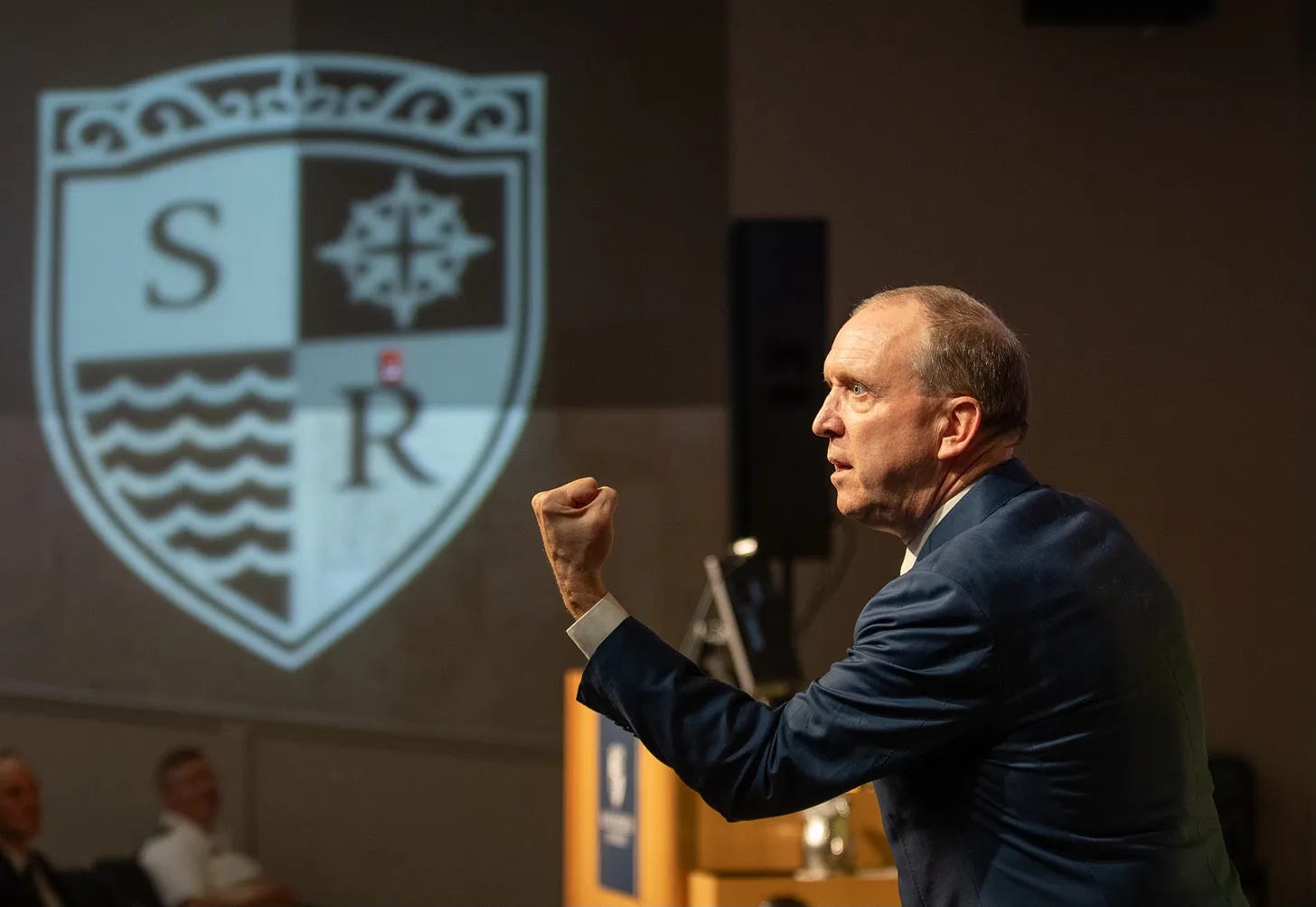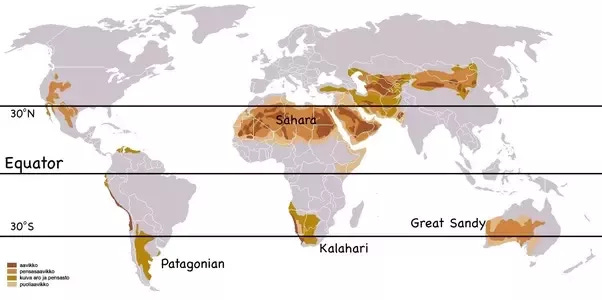Questions and Answers #2
An Ask Me Anything (AMA) post
I am today delivering a mid-career class on national security decision-making at the Maxwell School at Syracuse University, so I slipped this here so as to accommodate my Saturday ode to my Mother.
And we’re off with questions submitted through noon Friday…
Thomas Leto
I must admit that I'm a closet imperialist and would love to see the Philippines be a future state of the US along with her twin sisters Puerto Rico and Cuba. How does one even begin organize for something like that, rather than wishful thinking?
I don’t know about the “sisters” thing, as the three have very different recent histories.
Yes, all three were Spanish colonies beginning in the 16th century and lasting until the Spanish-American War of 1898, and yes, all three were exploited primarily for commodities production (sugar, coffee, tobacco, etc.).
Their colonial histories diverged, however, once the US gained control of all three, plus Guam, from Spain.
Cuba went independent in 1902, then socialist in 1959 with Castro.
PR became an unincorporated U.S. territory, with citizenship granted in 1917 and commonwealth status in 1952, but it still remains just a territory with limited representation in Washington.
The Philippines underwent a period of US colonial rule (to include a bloody rebellion from 1899 to 1902 and lingering insurgency for years following), then gained territory status, then commonwealth status, and finally independence in 1946.
As for becoming states …
PR had its latest non-binding vote in 2024 and 57% were for statehood, so the hold-up isn’t there but rather in Congress, where the GOP fears an automatic two blue senators would tip the balance in the upper house. That’s the same hold-up reason for the District of Columbia. Biden was for it, but hard to see Trump embracing it, given its past/ongoing grudges with various local leaders over his handling of hurricane relief during his first term.
So, the PR is there for the having. Just need a Congress that’s apparently Dem-enough to make it happen, like with DC. That’s as close as the next election, but that’s been true for a long time in both instances without any serious movement.
Cuba is a different beast, given the Cuban vote in Florida and its strong focus on keeping economic sanctions on the still-socialist regime. Cuba would need to experience a democratic revolution, then come to its own popular conclusion that statehood beats going it alone. So long as the regime there stands, US Cubans will remain solely focused on its reform/downfall.
The Philippines, given its strong national identity, would be an entirely different calculation based on fear of Chinese domination and/or the experience of Chinese bullying/expansionism. If things seriously escalated between them over various territorial disputes, the Philippines would certainly turn to us for support. Maybe something like Beijing snatching Taiwan violently and then getting rougher with the Philippines would be required for that sort of momentum to build.
So, in my estimation: PR could happen tomorrow, Cuba I think naturally unfolds over the years/decades, but the Philippines would be only under duress.
As for what you can personally do … my answer is always the same: simply support any pathway to a 51st state, because breaking the mold — all by itself — change the mindset and open up all sorts of opportunities.
Michael Moran
Since it appears that Trump is going ahead with a pro Russia peace agreement without much input from Europe or most importantly Ukraine, is there a continuing insurgency within Ukraine that will not accept it and what does a post perceived sell-out peace look like in Ukraine?
Hmm. Ukraine has some history of insurgencies, and you gotta believe the current regime has contingency plans — along with potential external supporters of the idea. But I don’t expect it to really unfold on any significant scale. Both sides have lost plenty and have tired publics that would gladly welcome peace, so, once the “lost” lands are recognized as having switched hands and there are international forces manning some buffer zone, I just don’t see either side being that eager or obvious in trying to sabotage the then-frozen conflict. Putin is patient, plus he can claim victory of some sort, to include coming in from the cold vis-a-vis the Trump Administration. Trump, once he brokers/forces the deal, will be very demanding of Ukraine to ensure it stays quiet and accepts its situation.
As for the settlement itself, the outlines are clear: Ukraine will lose what it has already lost in territory and be denied NATO membership. Seems like EU membership will be allowed, but only if Ukraine maintains some neutral military status as a clear buffer state.
Trump is pushing for some minerals deal with Ukraine to justify continued US support/aid, and he’ll probably get something (perhaps by the time this posts) that he’ll thereupon claim is self-paying. Very transactional. “Peace in our time,” and so on.
Ukraine has endured centuries of being screwed over by Russia, and this, sad to say, will be no different.
Philip Kretsedemas
Interested in any elaboration you'd like to offer on your analysis of Customs and Border Protections capability gaps (in light of current context) and especially on best practices and/or words of caution for institutional fusions between DoD and CPB.
Following the piece I wrote a few years back for Homeland Security Affairs (2019) entitled, Capability Gaps Threatening CBP's Present and Future Operations … it seems like that article was recently purged from the archives of the Center for Homeland Defense and Security’s website:
I’m being repressed, it would seem …
You search for the article and it’s now untraceable.
So, apparently, what I wrote back then offended the Trump Administration or, CHDS, in a defensive crouch, preemptively removed the piece to avoid any potential trouble with Trump 2.0.
Tells us something, does it not, about the state of fear within the USG right now? Speak the wrong words, get fired. Write the wrong words, get fired.
Putting that aside for the moment …
The only thing I would say here is that — in general, we’ll continue to see the US Military re-oriented to homeland defense missions (talk of Iron Dome, going after drug cartels like terror networks during the GWOT, troops at the border, military incursions into Mexico, CIA getting involved, tasking NorthCom with prioritizing border security, etc.) under Trump. So, a lot more coordination and cooperation and operational fusion between DHS and DoD. I think that precedent will grow less shocking with time and invariably morph into an enduring reality per my notion that North-South integration becomes the norm — and that starts with establishing security across the Americas.
Trump 2.0 is cutting back presence and requirements across the world, while building them up in our hemisphere. That’s the throughline.
Peter Kay
Where you differ from Peter Zeihan's predictions of China's demographic collapse? How would you characterize the biggest gap between the two of you WRT China?
We both acknowledge China's demographic decline, but differ in our projections. Zeihan views China’s demographic crisis as more unique, severe, imminent, and irreversible. I see it more within the larger context of a Global North aging rapidly across the board.
Zeihan, in general, has China collapsing within the next decade. I think that’s too alarmist. While we’re both given to demography-is-destiny thinking, he jumps to dire conclusions a lot faster than I do. As with any country, I expect adaptations and responses to emerge, along with mass south-to-north migration stemming from climate change.
More broadly, Zeihan seems locked in on China’s complete economic collapse before mid-century, and I just don’t see that happening. I see China as an economic powerhouse that will not go away. I expect vigorous competition throughout the next several decades, but predicting complete political collapse … I expect China to remain Chinese.
Michael Ryan
you've been writing about radical acceptance of late, is there a "radical acceptance" to be had on security in Europe right now... and your prognosis on that actually taking place
There sure is, and you’re hearing it now: the Transatlantic bond, as we have long defined it, is dead as far as Trump is concerned. So long as MAGA reigns in America, Europe is basically on its own, security-wise.
Conservatives will justify this tough-love approach as necessary to stopping America’s subsidization of Europe’s security, and that’s an inevitable development, in my opinion, so radically accepting that and moving toward a pan-European military would be logical.
Any European Defense Union would essentially supplant NATO. Inconceivable to many for the longest time, I think it is inevitable in the foreseeable future. The continuing Russian threat will drive it.
Jeffrey Itell
What are the root causes of Russia treating its people as disposable cannon fodder for the ruling elite? My grandparents escaped certain death under the Czar, but the same patterns persist today. Why do these tendencies seem to be spreading in America?
Russia has never been a nation or had a strong civilizational identity. It has always been a multi-ethnic empire in which the government’s power was great but not extensive — so an autocracy without reach.
To defend itself, imperial Moscow built up the mystic of the all-powerful czar while cutting all sorts of deals with local parties to secure its borders, hence its frequent reliance on Cossacks and the like as an internal/borderland force. Like any empire, those on top excel at getting one of their tribes to beat on and rule over other ones — keeping them busy (Stalin was a master at this).
When that central power, most often based in Moscow, was forced to defend its vast territories from foreign incursions, it developed the habit of throwing people at the problem — quite literally. You see it in basically every war they’ve fought: people (serfs) are cannon fodder because the cause of the czar, or Mother Russia, or the socialist state, or whatever was/is so great as to demand their sacrifice. These serfs, when not pressed into military service, were essentially indentured farm servants for the nobility — closer to slaves than your more standard European peasants. Serfs, for example, could be bought and sold throughout the 18th century and much of the 19th century. Serfdom was officially abolished by the czar in 1861 — coincidentally. Thus, a slave history basically as extended as our own in the US (and yeah, that does still linger in the ways African Americans are viewed and treated by various ruling systems here).
That’s how the elite has survived in Russia throughout the ages. The place has never really enjoyed anything close to popular government for any serious length of time. It simply doesn’t know any better, and so the people accept it.
As for your last point, I’m not seeing it in the US in the manner I’ve long seen it in Russia. I think you’re conflating economic inequity with something larger (lack of care regarding troop losses) that hasn’t been true in our nation since the bloody Civil War. I would say, just the opposite is true of our approach to military operations, but I’m guessing your point was more along the lines of oligarchs not giving a damn about the wee folk. To me, that’s a periodic problem in America, with the solution being a progressive era.
But yeah, we are at peak rich-disdain-for-the-masses in America right now. It’s part of what makes Musk + Trump so fascinating.
Brent McClintock
How do you see the three trends in ANM playing out in the Southern Hemisphere below "the Middle Earth" belt?
There’s just not enough there, in terms of landmass, for it to be of consequence. North America is huge compared to the southern cone of South America. Below 30 degrees south in Africa is pretty much just South Africa. That just leave the south of Australia in Asia.
So, just not enough there to matter, relative to the vast territory to be opened up and “warmed” in the northern quartile of the planet.
Do I see migration there? Yes. I just don’t see the money or resources to make these slivers of territory significant “safe harbors.” Already, as I noted in yesterday’s Cutdown, South Africa is feeling stressed out by migrants heading their way.
So, yes to a New North, but no to a truly New South.
John J. Brown
So most American Institutions are paralyzed by Trump, does Europe take the opportunity to be the world’s leader (like they were in 1820 - 1914)?
We can only hope. The military dominance won’t be there, but the economic/regulatory power of that common market is huge, as I have noted frequently here, and so Europe’s strength lies mostly in rule-setting and the continued example of its integration of new members.
The real step forward for Europe, besides the Pan European Military that Trump is instinctively seeking to trigger, is to move toward integrating Islamic states to the south as the future of the Union — Mediterranean-centric.
That’s a few inconceivables down the road for now, as Europe will be busy growing up fast as a superpower-all-its-own thanks to Trump and the rupturing of the Transatlantic bond.
In the end, per Martha Stewart, these advances will be “good things” — despite the near-term pain. I know that sounds like I’m rationalizing Trumpism, but that’s only because I’m rationalizing Trumpism.







That missing article: https://web.archive.org/web/20240626103124/https://www.hsaj.org/articles/15389
I really appreciate you taking the time to answer my question. I'm sorry that I am posting this so many days afterwards. From your PNM days I always remembered you as a calming source of reason. Your long-term realistic perspective is a comforting way to look at changes in the world. That doesn't make the present immediate threats any less alarming, but having a long view is helpful.
Thanks again!